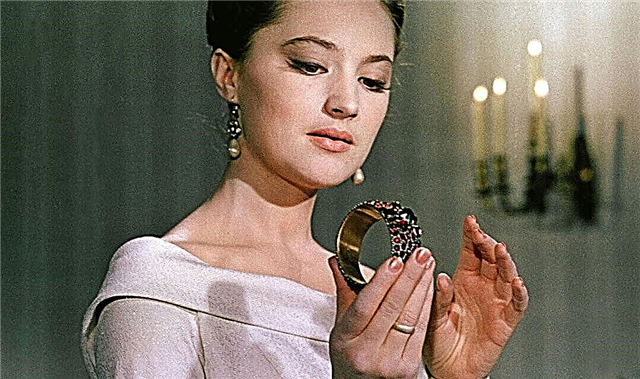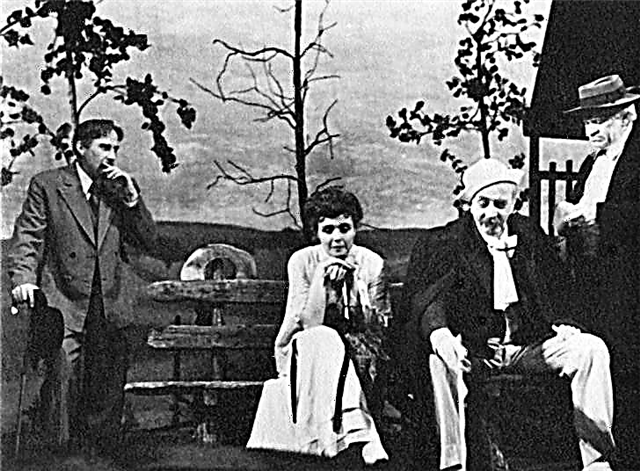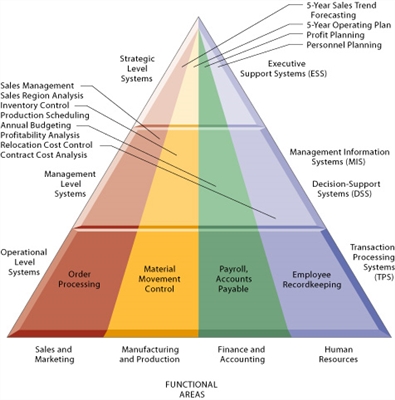Real time life
A motivated person will not feel like a passenger in his own life. Actions create life in real time.
The age of twenty to thirty is a time of uncertainty and “years of wanderings”. In people after twenty, short-term work has taken the place of a long-term career.
Young people over twenty in the 21st century are tempted and even encouraged, offering to turn a blind eye and hope for the best. People between twenty and thirty believe that avoiding decision-making at the moment, they leave opportunities open, but refusing to make a choice is also a choice.
To do something later does not always mean to do it better. Modern young people begin to think about the future later than their parents did.
Identity Capital
In young people aged 20 to 30, prolonged self-digging often leads to opposite results.
What we do well enough or long enough for it to become part of us is our investment in ourselves.
The more time it takes us to occupy a strong position in the professional sphere, the higher the likelihood that we will become “different and injured”.
Weak connections
Weak connections are people we meet or keep in touch with, but are not familiar enough with. Our friends can bring soup when we are ill, but it is people with whom we are barely familiar who are able to quickly and radically change our lives for the better.
Similarity breeds friendship. People most often build close relationships with those who are like themselves.
Information and opportunities are transmitted through weak connections much faster than through close friends, since people with weak connections have fewer common contacts. Weak ties resemble a bridge whose end is not visible, which means it is not known where it can lead.
Unconscious known
If you do not know how to distinguish one direction from another, then you will not be able to make a choice. Reluctance to make a choice is the hope of the existence of some way to live life without incurring any responsibility.
Unconscious known - this is what we know about ourselves, but for some reason have forgotten. These are the dreams that we have lost, or the truths that we share, but we avoid supporting openly. We are experiencing how this unconscious known effect on us and our life.
Real uncertainty begins at the moment of choice. The most terrible uncertainty is to strive for something, not knowing how to achieve it.
You can not make a choice, but such a position does not protect against dangers. This will certainly entail certain consequences, but they will declare themselves a little later - at thirty - forty years.
Everything should look beautiful on Facebook
For many, Facebook is not so much a tool for finding friends as an opportunity to track information about them. Facebook users on average spend more time viewing other users' pages than creating content on their own. Such lovers of “social investigations” not only establish or maintain contacts with friends, but watch their life.
Facebook can turn our daily lives into the wedding that we have all heard about: when the bride chooses girlfriends from among the most beautiful girls, and not from among the most beautiful friends. Presence on Facebook turns into a struggle for popularity, when the main thing is to get a “like”; to be the best is the only worthy option; the appearance of our partners is more important than their actions.
Between the participants of social networks is a tough rivalry. As a result, the social network becomes another place that creates the appearance of life.
Facebook is not a way to communicate, but a chance to be on top, not lag behind others. Worst of all, now we have to correspond not only to our close friends and neighbors, but also to hundreds of other people whose artificial statuses constantly remind us of how beautiful life should be.
One of the elements of realizing one’s potential is to realize how our abilities and limitations fit into the world around us. In other words, we must be aware of our true potential.
A person feels goals as true dreams, and various “musts” are perceived as grave obligations.
Life does not consist of the possibility of “eating, praying and loving,” but of people, places, and specific events: of the one with whom we maintain relationships, where we live and what we do to earn a living.
Life to order
Eccentricity is one of the factors that make us who we are. It fills our lives with meaning. In many cases, the main thing that we know about who we are is what we are not. We designate ourselves as “not this” or “not this”.
A woman of thirty-nine years old told the author: “At this stage of my life, I plan to work, hire a nanny for the children and not see them all day, so I need an interesting and well-paid job. But I can’t find her. At twenty-odd years, I did not think about work at all. After thirty, I had children. We need money, so I need work, but you won’t believe it - I just can’t get it. I go for interviews, and they look at me with bewilderment: “What have you been doing all this time?” I am very sorry that once in my life there was no person who would explain to me that it was time long ago- think about your resume for a long time. ”
Young people who do not start a career between the ages of twenty and thirty, end up with an empty resume and break away from real life, and all this is just to stop at something, but much later.
Between the ages of twenty and thirty, a good story is far more important than in any other period of life. After college, a resume is just beginning to take shape, so a story about yourself is not much that a person can express himself in. At twenty-odd years, life is more a potential, not a fait accompli. A person who knows how to interestingly talk about himself and his plans is able to surpass the one who cannot do this.
Life does not have to be linear, but it should make sense. There is only one way to live life happily: to do what is not only interesting, but also makes sense.
Talk about the main thing
Creating a family is one of the most important events in our life, because a lot depends on it. Money, work, lifestyle, family, health, leisure, retirement and even death - everything turns into a running competition in pairs. Almost all the events of your life will be closely intertwined with the events of your partner’s life.
Even if the marriage is unsuccessful, it can not be simply abandoned as a boring job. And after the divorce, spouses can forever remain connected to each other financially and in everyday terms, since they pay for the education of the child and meet every day off on the driveway to the house to give or take the children away.
"Re-marriage is the victory of hope over experience." Currently, half of the twenty-thirty-year-olds have survived a divorce, and everyone has friends who have also gone through this.
Those whose marriage was unsuccessful believed that if they were happier after the divorce, then their children would also be happier. However, when these children grew up, the “unexpected legacy of divorce” made itself felt.Many children of divorced parents say that they did not notice or did not pay attention to the fact that their parents are unhappy in marriage. They knew only one thing: their life fell apart when the parents broke up, because after that too little blessing and attention fell on their parents.
It is well established that marriage between young people under the age of twenty is the most unstable, but delaying the marriage for later does not guarantee the strength of the union.
Cohabitation effect
Men and women unanimously declare that their standards in relation to cohabitants are much lower than to spouses. Couples who live together before marriage, but after the engagement, and who have undertaken public obligations, have a higher probability of a failed or divorced marriage than couples who do not live together before marriage.
Very often young people over twenty decide to live together with their partners, believing that it is cheaper and does not carry any risk. However, after a few months or years, they realize that they cannot break this vicious circle.
In behavioral economics, this phenomenon is denoted by the term “consumer closure”. A closure is a situation where the choice of one option significantly reduces the likelihood of choosing another after an investment in something has already been made.
Compatibility: likeness and liking
By compatibility, the author understands the similarity in something important and real sympathy for another person - the way he is. The more two people have in common, the better they understand each other.
People who have a lot in common react equally to a rainy day, a new car, a long vacation, an anniversary, a Sunday morning, and a noisy party. Similarities between partners are a key element of their compatibility. Couples who have a lot of similarities by criteria such as socio-economic status, education, age, ethnicity, religion, attractiveness, attitudes, values and level of intelligence are more often satisfied with their relationships and less often break them.
Factors that prevent you from pairing include your personal relationship requirements. The more partners have common personal qualities, the higher the likelihood that they will be happy with their relationship.
Personal qualities are not what we have done or even what we are, but how we interact with the world around us, and everything we do depends on it. Personal qualities are that part of our "I" that we take with us everywhere.
In most cases, people break up due to a lack of change.
To build a common vision and a common life is the task of young couples. Similar qualities are perceived as an encouraging factor confirming the right choice, and differences can seem threatening.
However, after forty years, when work, children, home, affairs, relatives and the community come to the fore, family life is less focused on relations between spouses. When couples not only have to dine and spend the weekend together, a variety of skills and interests can do a good job. In this case, the differences bring a fresh stream to life.
To successfully cope with study, you need to be able to solve problems that have the right answers and clear deadlines. However, in order to be an adult, able to think ahead of time, you must be able to think and act even (and especially) in the face of uncertainty.
We become what we see, hear and do every day. We cannot become what we do not see, hear, and do not do every day. In neuroscience, this phenomenon is known as the "survival of the most active."
Confidence is gained with experience.
Self-confidence is not innate, but a quality acquired with experience. Whatever the matter, love or work, self-confidence takes precedence over insecurity only when it is based on experience. There is no other way.
Young people after twenty who, because of low self-confidence, hide from life, performing work that does not correspond to their qualifications, act contrary to their own interests. In order for professional activities to increase self-confidence, it must be difficult and interesting. And it is necessary to deal with it, without resorting too often to someone else's help. At such a job, everything cannot be and always done flawlessly.
By managing your emotions, you build self-confidence. Knowing what you want to do does not mean knowing how to do it, but knowing how to do your job does not mean doing it well.
Keep living and move on
Between the ages of twenty and thirty, life becomes easier. We become emotionally stable and not so painfully endure the vicissitudes of fate. We are becoming more responsible and socially literate. We are more willing to accept life as it is, and are ready to cooperate with other people. In general, we are turning into people who are more satisfied with life and confident in ourselves, and also experience less anxiety and anger. However, such changes do not occur with every person.
Trying to avoid adulthood will not help you feel better; this can only happen through investment in adulthood. Twenty-odd years is the period when we move from studying to work, from casual relationships to real relationships, from spending the night on other people's sofas to our apartment. Most of these changes require us to make adult commitments that radically change both our position in society and who we really are.
Investing in love and work starts the process of maturation of the individual. The status of a company employee or a successful partner contributes to its transformation, and permanent residence in one place helps to lead a more measured lifestyle. On the contrary, young men and women of more than twenty years old, who do not strive to live life to the fullest and move on, experience feelings such as depression, anger and estrangement.
Active goal setting between the ages of twenty and thirty years helps to increase determination, skill, ability to act and well-being at the age of thirty to forty years. Our goals show who we are and who we want to become. They talk about how we organize our lives. The goals that you set for yourself now determine who you will be between the ages of thirty and forty years and older.
Sustainable relationships reduce social anxiety and depression because they allow us to feel less alone and provide an opportunity to develop interpersonal communication skills. We learn to manage emotions and resolve conflicts. Relationships with lovers help us find new ways to prepare for life in the adult world. And in those days when it becomes really difficult for us to survive what is happening, they can become a source of confidence and a more reliable refuge, something that we can find with our parents.
The constant absence of a couple can have a detrimental effect on the lives of men, since those who lead a lonely lifestyle at the age of more than twenty years old, their self-esteem drops significantly by the age of thirty.
A little bit about time
Twenty to thirty years of age can turn into life without time. After graduation, we leave behind the only life we have ever known. But our life is revealed, and the curriculum disappears without a trace. There are days, weeks, months, and years, but there is no way to find out when and why an event should be experienced. This can be misleading and turn life into a kind of existence in a cave.
People of all ages and backgrounds do not take the future seriously, preferring to receive a reward today, rather than tomorrow. It’s more important for us to have $ 100 now than $ 150 next month.We choose a chocolate cake and a new thing now, but we decide to deal with the gym and a credit card later.
This is not unique to young people after twenty. This is a universal quality that underlies addiction, procrastination, health problems and a frivolous attitude towards retirement savings. In many cases, it is difficult for us to think about what will happen in the indefinite future, and attach some significance to this.
The age of twenty to thirty years is the period during which a sense of time begins to form in us, and we make our own plans for our future life. Determining when to pursue a career and start a family is quite difficult. It’s much easier not to think about anything and stay away from problems.
However, young people of more than twenty years, living out of time, as a rule, are not happy. It’s the same as living in a cave in which we cannot determine what time it is, we don’t know what we should do or why, and sometimes it continues until it is too late to change anything.
Will all of this help me?
At the entrance to the Rocky Mountains National Park there is a sign with an inscription made in large bold letters: “MOUNTAINS EVERYTHING IS EQUAL”. This sign warns park visitors that they must have the proper equipment and be prepared for hazards such as lightning and avalanches.
The author was twenty-eight years old when she first saw this inscription. She inspired fear, but immediately liked the author. For her, the fact that the truth was written on this tablet meant a lot. The inscription reminded her that, going to the reserve, she should know where she was going and be prepared for everything.
It is the same with adulthood. There are things that should be accepted as they are. The best thing you can do is to learn as much about them as possible.
At heart, young people in their early twenties want to be considered and taken seriously with their lives. They want to know something that they do matters, and that’s true.
The formula for a good life does not exist, as there is no life right or wrong. But there is a choice and its consequences, so it would be useful for twenty-year-old boys and girls to think about their future. Thanks to this, they will feel better when this future comes. If you pay enough attention to your life between the ages of twenty and thirty, wonderful days await you.
The future is not written in heaven. There are no guarantees. Therefore, take responsibility for your life. Set goals. Find a job. Create a family. Do not forget about the time. Bring certainty to your life. Your fate should not depend on the fact that you did not know something or did not do something. Now you are making a choice that will determine your whole life.



 Shuans
Shuans






